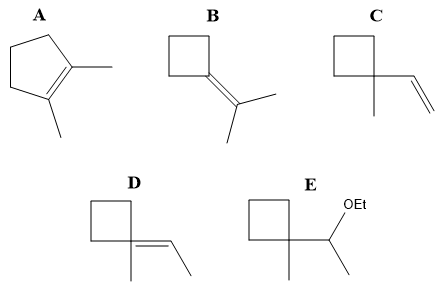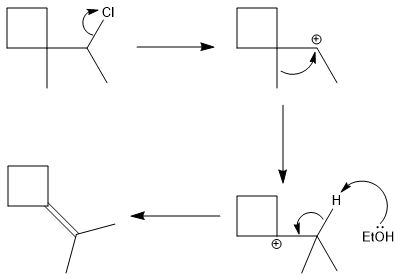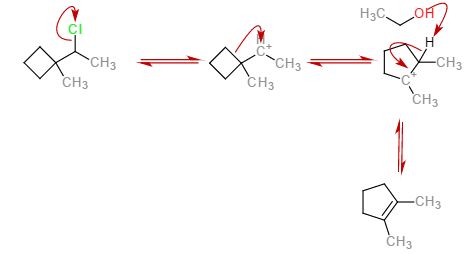What is the major product of the following reaction?
It looks to me that the $\ce{Cl}$ group leaves then there's an alkyl shift to where the $\ce{Cl}$ group leaves in order to form a tertiary carbocation. Then $\ce{EtOH}$ attacks the beta hydrogen and forms a double bond to give product B:
However, the answer I came up with was incorrect. Any ideas why?




